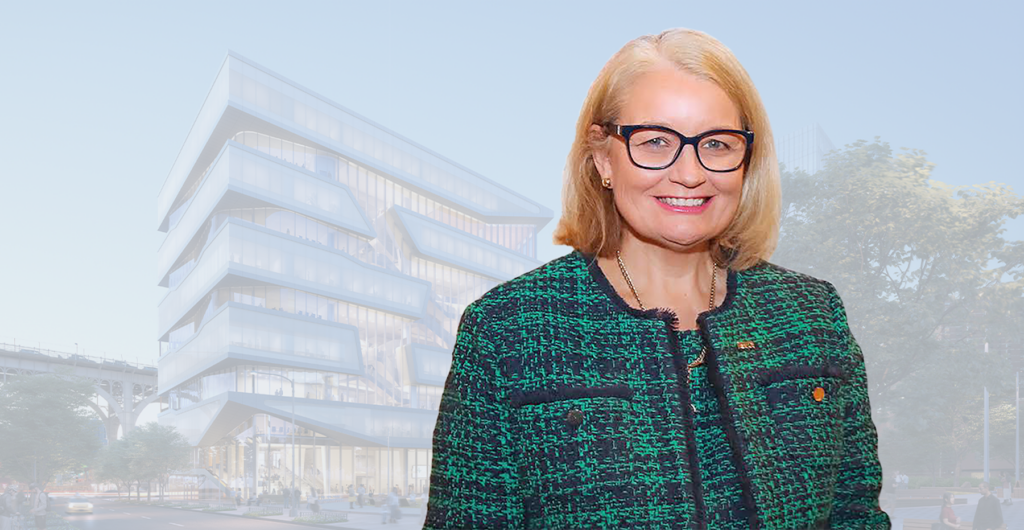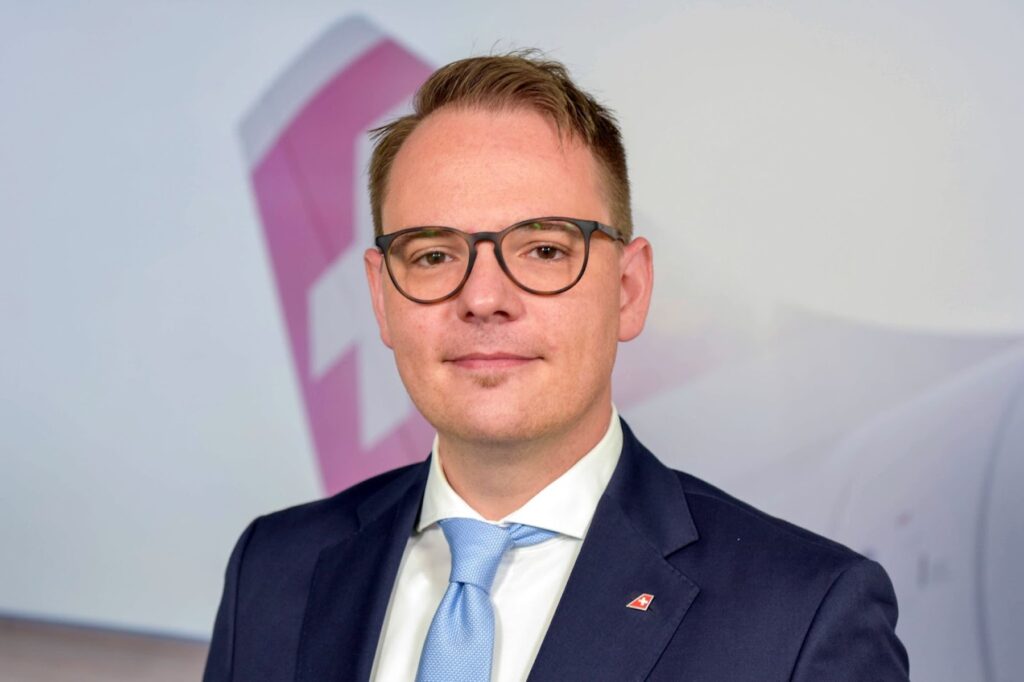Isolation is a common element of the executive experience — one Mairead Lavery understands acutely. For the last eight years, she has held an executive position at Export Development Canada (EDC), the country’s export credit agency. She first served as Senior Vice President of Business Development and has been President and Chief Executive Officer since 2019. Lavery’s knowledge of the industry is unparalleled, and she understands what it takes to lead an organization to success. What she felt was lacking in her career when she joined the Columbia Business School Executive Education Advanced Management Program was not competency, but connection.
Lavery was already familiar with the Advanced Management Program. For years, Export Development Canada has relied upon Columbia Business School Executive Education to develop its senior executives. Taking part in the program has become a tradition at EDC, and leaders who complete the program enjoy a certain cachet. So when it was Lavery’s turn, she knew she would get more out of the Advanced Management Program than a few new tools to manage business challenges and drive results in her organization.
To Lavery, the Advanced Management Program embodied community, and her experience helped her build the network she had been missing. She recently took time out of her busy schedule to share how becoming a part of Columbia Business School Executive Education Advanced Management Program’s global network gave her the sense of community she was looking for.
What Does the Program Offer Executives?
Opportunity, for one. A chance to learn, hone leadership skills, or refresh what you know. It’s been a long time since I’ve been at university, so it was an excellent opportunity to catch up again, get current on what’s going on, and get new input.
The networking aspect was essential to me. Columbia Business School gives you access to this incredible network and helps you build connections. That is probably the legacy and what I enjoyed the most. Being CEO or in a senior executive role can be pretty lonely. How do you talk to peers who you might be competing against? How do you speak to them about challenges, even though some might be assessing your performance? The Advanced Management Program was this safe space to explore and bring your thinking up to date.
I think that’s what executives get out of it — the no-judgment opportunity to learn. And perhaps learn without the responsibility of doing it when your employees and everything going on in the business need to take precedence.
How Does the Caliber of the Other Participants Add Value to the Program?
The other participants add value by sharing experiences and challenges, talking about opportunities, and offering different perspectives — especially geographic, educational, and economic perspectives. You’re not going through the program with someone you know who reads the same newspapers as you, went to the same schools, and is involved in the same economy as you. It’s a kaleidoscope of varied perspectives, and that’s what other people bring to the table.
There’s no judgment or harm. It’s just sharing perspectives, and that’s super helpful. For me, the other participants made the program.
What Was the Highlight of the Program for You?
Without a doubt, it was the network I acquired through the program. I didn’t just develop business colleagues or professionals that I could reach out to. I made friends through the program, and I acquired this global network. That, for me, was the single most significant thing.
If you ask me what I enjoyed about the program, my answer is slightly different. I spend my life receiving reports from people — people who want fast decisions based on facts and data. For me, my favorite part of the program was not the theory. It was the experiential learning.
One of the Advanced Management Program components involved participating in an orchestra. We didn’t just sit and watch them play. We got to actually sit with the orchestra and see how the orchestra interacted with one another and how the conductor made this wonderful music. The experiential activities during the immersion experience put you into a place where, all of a sudden, you see things in a different context. In that case, it was the theory of leading a team as a conductor shown in practice.
Those are the things that you remember the most. When it comes to learning how to work as a team or learning how to inspire others, you do it in the program, too. Don’t give me a program full of case studies that I need to sit and review because that’s what I do every day. This was about going outside of our comfort zones, doing something different, and learning from a different perspective.
What Faculty Members Stood Out to You?
There were so many. The program has two leaders: one professor and one assistant professor. The assistant professor was writing a book, so we became part of his writing journey. We stayed connected to him and each other. We have a WhatsApp group, and many of us are active in it.
Columbia Business School professors and industry leaders you’d see on social media, hear about, or read about would come in as guest lecturers. You have these people that have a very distinguished career, and you start to learn about them and with them.
But it’s the people whom you don’t expect to connect with that you remember. It’s the guy sitting behind me in the rowboat during the group rowing exercise who is a member of the Columbia rowing team and was there to facilitate the experience. It was the orchestra members who train and practice every day when suddenly they have this group of people sitting in the midst of them who are trying to take business lessons away from these activities.
I often think about the role that everyone had to play to make all those experiences come together. If I step back now and think about it, it was the sum of all those parts, not just any one individual, that stood out.
Why Would You Recommend This Program to Other Executives?
It is a mix of experience and theory. You go and do experiential things, and then you have a class on strategy. It’s interesting because it shakes you up. As I said, if you put me in a classroom for four weeks, I’m not going to get a lot out of it. I can’t sit and do that anymore. It’s not how we learn in real life. Learning authentically is extremely important to me.
We had a session on identifying what your values are. Ever since then, I have been so clear about my values. I knew what my values were before, but I couldn’t articulate them. Coming out of Columbia Business School, they give you a little card with your values written on it. Now, I am clear about my values and how to articulate them. I know when they’re under attack. I know what things I want to promote because they match my values.
My recommendation hinges on it being a global program. The value stems from the participants being from around the world and from different industries but also at the same career level. You can’t have a mix of people at different levels. That doesn’t mean everybody has to be at the same executive level, just that you have to have that shared experience or shared understanding so you can engage with each other.
I work in international business so that global perspective was extremely important. You get views from around the world in this program. Pre-pandemic, when I was going to Australia, I met with all the Australian participants. When I was going to South Korea on my first visit, I called the South Korean participant to ask what I should know or if there was anything they’d want to advise me on. What a gift that is in terms of culture and understanding the politics of a country — and how business is done. For me, that was an extremely important part of the value proposition.
The Advanced Management Program offered by Columbia Business School Executive Education will extend your professional network to include notable executives from across business fields and from around the world. Join this exclusive group of executive learners by applying today.



